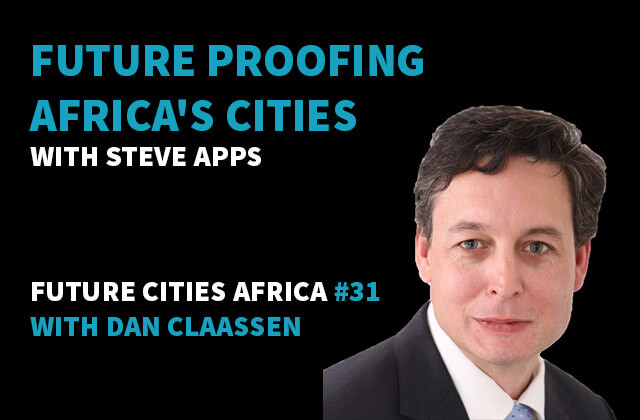Listen to Audio
Energy Efficiency And Renewable Energy Due Diligence In Municipal Wastewater Treatment Works
Ashton Mpofu, Expert Analyst for Water at GreenCape explains current municipal regulations, successful municipal projects, primary challenges, assessing economic feasibility, financing opportunities, and more relating to Energy Efficiency and Renewable Energy applications in Municipal Wastewater Treatment Works.
Stay Connected
Overview:
GreenCape is a non-profit organisation that drives the widespread adoption of economically viable green economy solutions from South Africa.
They are working on a multi-stakeholder project with the financial support of the Green Climate Fund, implemented and managed by UNIDO | United Nations Industrial Development Organization, focused on pipeline development to deploy clean energy technology solutions in municipal wastewater treatment works of South Africa, providing readiness activities for the Green Climate Fund.
Ultimately this project aims to support the utilisation of climate finance in the municipal Wastewater Treatment Works space, where Energy Efficient and Renewable Energy applications can assist.
Episode Summary:
- 00:00:00 In this section, Ashton Mpofu explains that there are currently no specific regulations or compliance standards regarding energy efficiency and renewable energy adoption in wastewater treatment works in South Africa. The only requirement is for the works to report on their power consumption. However, there are ongoing efforts to address this issue, such as the upcoming carbon bill that will require sectors, including the water sector, to report on their carbon emissions and develop strategies to reduce them. The speaker also mentions successful municipal projects, particularly biogas projects, where anaerobic digestion technology has been widely adopted for biogas production.
- 00:05:00 In this section, Ashton discusses various energy efficiency and renewable energy technologies that are being adopted in municipal wastewater treatment works. He mentions the use of anaerobic digesters, floating solar panels, mini hydro projects, and opportunities for wind power and solar PV installations. However, he acknowledges that there is still room for improvement and more adoption of these technologies. They go on to discuss the key challenges faced by municipalities in enhancing energy efficiency and incorporating renewable energy solutions, including the lack of technical skills, financial constraints, and limited knowledge about energy technologies.
- 00:10:00 In this section, Ashton Mpofu discusses the importance of educating and sharing information about the benefits of energy efficiency and renewable energy in municipal wastewater treatment works. He also highlights the challenges of procurement methods and the focus on initial capital costs rather than life cycle savings. The main priority is restoring and improving the functionality of the treatment plants before considering larger projects. However, the speaker encourages incorporating energy efficient technologies in the restoration process. They mention the availability of grant funding from the government and other organizations for infrastructure and energy efficiency projects, but also raise concerns about the awareness and capacity of municipalities to access such funding. Ashton suggests the need to educate and support municipalities in planning and applying for grants. Additionally, he mentions the availability of climate finance for reducing greenhouse gas emissions.
- 00:15:00 In this section, Ashton Mpofu discusses the various funding options available for municipalities to invest in energy efficiency and renewable energy projects. They mention that accessing climate finance, commercial loans from banks, and donor funding are potential avenues for funding these projects, although it may be limited for certain municipalities due to creditworthiness and financial constraints. He emphasizes the importance of being aware of available funding and adapting as municipalities to access it. Additionally, he highlights the need for municipalities to assess the economic feasibility and long-term benefits of investing in energy-efficient and renewable energy solutions at wastewater treatment works. Ashton Mpofu suggestd conducting energy audits to identify areas for potential energy savings and looking into financing options to determine whether the projects are technically and economically feasible for the municipality.
- 00:20:00 In this section, Ashton discusses the need for enhanced training and capacity building in municipal wastewater treatment plants to promote energy efficiency and renewable energy. He emphasizes the importance of conducting a level one energy audit to determine where energy is being used and then making plans to save energy and identify potential procurement opportunities. However, the issue of limited funding arises, and the speaker suggests that municipalities need to be honest with themselves about their financial situation. He suggests seeking funding through grants or donor funding rather than approaching commercial banks, as many municipalities may not be creditworthy. Ashton also highlights the importance of conducting technical and economic feasibility studies before implementing energy efficiency projects.







